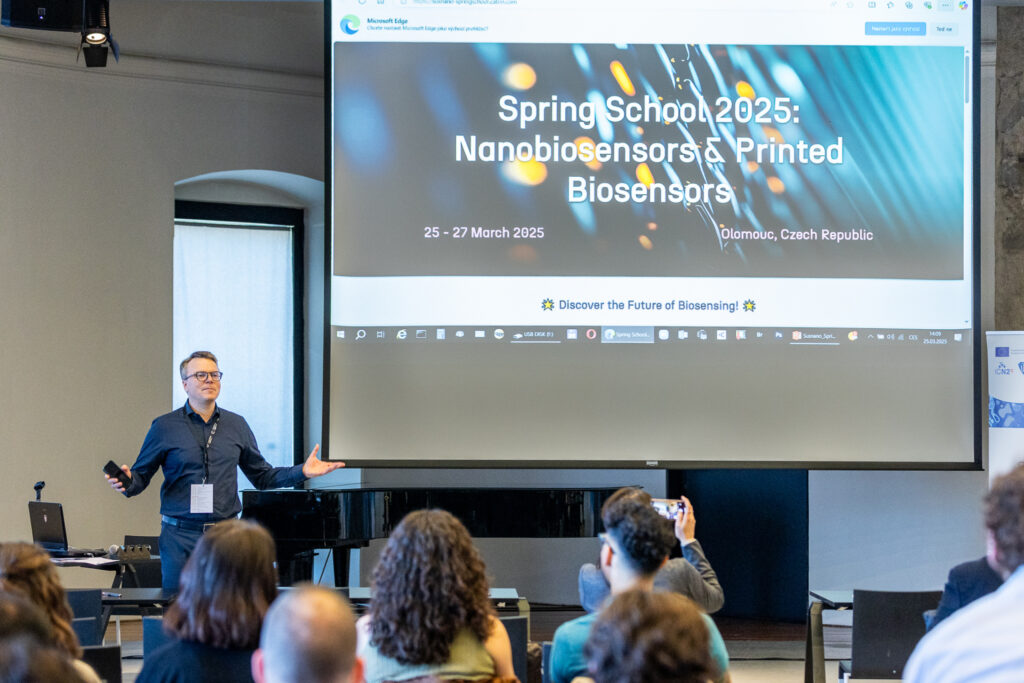International Spring School Offers Key Insights on Biosensors for Young Scientists
Presenting the latest advancements in (nano)sensor technology is the focus of the three-day Spring School on Nanobiosensors and Printed Biosensors, held in Olomouc. Organized by the Czech Advanced Technology and Research Institute (CATRIN) at Palacký University, the event takes place within the framework of the TECHSCALE and SUSNANO projects, with support from the University of Tirana and ICN2 in Barcelona. A total of 55 scientists are attending.
“The primary goal is to equip master’s and PhD students, as well as early-career researchers, with the latest knowledge in nanobiosensor and printed biosensor development. Over three days, participants will gain both theoretical and practical insights into biosensor technologies, build valuable connections with experts from academia and industry, and find inspiration for their research and professional growth,” said Michal Otyepka from CATRIN on behalf of the organizers.
The importance of the event for young researchers was also emphasized by Arben Merkoçi from ICN2 in Barcelona, a leading research institute. “The Spring School introduces fresh ideas in nanobiosensor development and manufacturing, benefiting not only the SUSNANO project but also the wider scientific community focused on designing, constructing, and utilizing the next generation of these devices,” said Merkoçi.

This attitude was echoed by Ivan Dědek from CATRIN, who presented a talk titled “A Novel Biosensing Mechanism Based on Single-Atom Engineering for Rapid Detection of Antibodies” on the first day. “This Spring School provides valuable feedback for our research, accelerating progress. It also gives me the opportunity to discuss ideas and experiences with colleagues working on similar challenges,” said the PhD student.
Experienced researchers from the Czech Republic and abroad are also contributing to the programme. Among the invited speakers are Fabiana Arduini (Tor Vergata University), Alessandro Silvestri (Ca’ Foscari University), José Flauzino (Imperial College London), Ondřej Zítka (Mendel University), and Michal Žák (OPV Ltd.). While the first two days are dedicated to lectures and networking, the final day features a hands-on workshop.
“The programme blends theoretical lectures with practical sessions, allowing participants not only to gain knowledge but also to draw inspiration and develop hands-on skills directly from leading experts,” explained Petr Jakubec from CATRIN.
The SUSNANO project, funded by the Horizon Europe programme, focuses on developing an electrochemical sensor for water quality monitoring. Besides CATRIN, key partners include the University of Tirana, ICN2 in Barcelona, and Intelligentsia Consultants Sarl. The TECHSCALE project, part of the Johannes Amos Comenius Programme (OP JAC), aims to design a new generation of nanomaterials for applications in energy, catalysis, sensing, and theranostics. As part of this initiative, CATRIN researchers collaborate with experts from five faculties of Palacký University, as well as scientists from Charles University and CEITEC VUT.
Detailed information is provided here.

